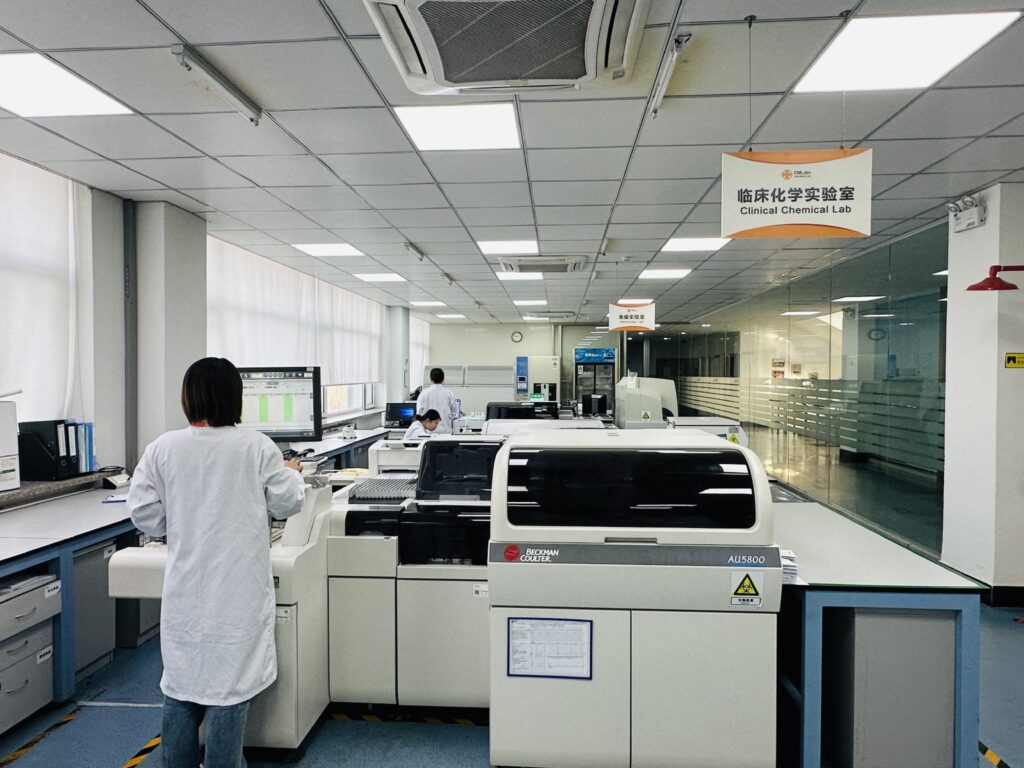How to Choose a Clinical Diagnostics System for Your Laboratory
Selecting the right clinical diagnostics system is one of the most important decisions for any medical, research, or analytical laboratory. A well-designed diagnostics system directly influences testing accuracy, workflow efficiency, turnaround time, and overall operational quality. With today’s rapidly evolving laboratory technologies, choosing the best system requires a clear understanding of your needs, testing volume, compliance requirements, and future scalability.
This guide explains the key factors to consider when purchasing a clinical diagnostics system and provides practical suggestions for laboratories of different sizes.
1. Understand Your Laboratory’s Testing Requirements
Before comparing systems, evaluate the specific testing applications your lab performs:
- Clinical chemistry
- Hematology
- Immunoassay
- Microbiology
- Molecular diagnostics (PCR, RT-PCR)
- Point-of-care testing (POCT)
- Specialty analysis (ELISA, electrophoresis, toxicology, etc.)
Clearly defining your test menu helps you determine whether you need:
- A single integrated system
- Multiple standalone analyzers
- A modular platform for future expansion
For new or growing labs, choosing a scalable solution is often the most cost-effective.

2. Evaluate Automation and Workflow Efficiency
Automation plays a critical role in modern laboratories. When choosing a system, consider:
- Sample throughput (tests/hour)
- Automated sample loading and tracking
- Barcoding and LIS connectivity
- Minimal manual intervention
- Error reduction features
- Automatic calibration and quality control
Higher automation not only increases efficiency but also reduces human error, ensuring more reliable results.
3. Check Accuracy, Consistency, and Analytical Performance
A diagnostics system must deliver precise and reproducible results. Compare:
- Analytical sensitivity and specificity
- Detection limits
- Reproducibility across runs
- International standard compliance (ISO, CE, FDA)
- Quality control tools (IQC, EQA compatibility)
Reliable performance is especially critical for clinical labs handling patient samples.
4. Evaluate Software and Data Management Capabilities
Modern diagnostics systems depend heavily on software. Look for features such as:
- User-friendly interface
- Real-time data monitoring
- Advanced analytics and reporting
- LIS/HIS compatibility
- Cloud-based data backup
- Remote monitoring or service support
Good software enhances productivity and strengthens traceability and compliance.
5. Consider Footprint, Installation, and Utility Requirements
Before purchasing, check the system’s physical and environmental requirements:
- Bench space and footprint
- Power consumption
- Heating or cooling needs
- Vibration or noise considerations
- Special ventilation needs
- Utility requirements (water, gas, waste)
Optimizing your laboratory layout ensures smooth workflow without interruptions.
6. Assess Cost, Consumables, and Long-Term Maintenance
The initial purchase price is just one part of the cost. Evaluate:
- Reagent and consumable prices
- Availability of spare parts
- Service life and warranty
- Maintenance schedule
- Support responsiveness
- Total cost of ownership (TCO)
A low-priced system may cost more later if consumables are expensive or support is slow.
7. Choose a Trusted Supplier With Strong Technical Support
Partnering with a reliable supplier ensures:
- Professional installation
- Technician training
- Fast after-sales support
- Access to spare parts
- System upgrades and maintenance
Work with companies experienced in serving clinical and research laboratories worldwide.
Conclusion
Choosing the right clinical diagnostics system requires balancing accuracy, automation, scalability, software capabilities, and long-term operating cost. By understanding your laboratory’s current needs and future goals, you can select a system that improves efficiency and delivers consistent, reliable results.
If you are looking for a dependable supplier of laboratory equipment and diagnostics solutions, Labvv is ready to support your project with high-quality products and professional guidance.
👉 Need help selecting the right diagnostics system?
Contact Labvv today for expert support and competitive pricing.
📩 Contact Us: https://labvv.com/contact/
💬 WhatsApp: https://wa.me/8613560386440
